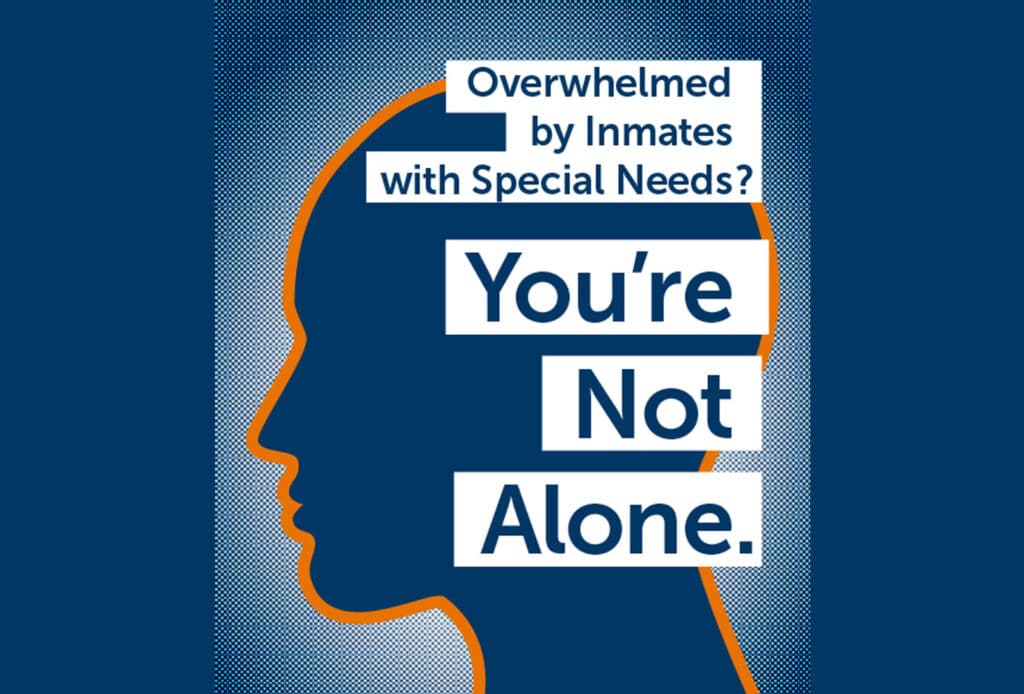There are 10 times as many people with severe mental illness in prisons and jails as there are in state psychiatric hospitals.1
Nearly 15% of men and 30% of women booked into jails have a serious mental health condition.2
Justice professionals and mental health professionals agree: Jails aren’t equipped to effectively treat mental illness, yet they do it every day.
“Prison and jail officials thus have few options. Although they are neither equipped nor trained to do so, they are required to house hundreds of thousands of seriously mentally ill inmates,” researchers found in a joint study done by the National Sheriff’s Association and the Treatment Advocacy Center. “Yet, when things go wrong, as they inevitably do, the prison and jail officials are blamed. The present situation is unfair to both the inmates and the officials and is untenable.”
Jail staff and administrators have been asking for help for decades, and you and your peers undoubtedly spend a great deal of time trying to get appropriate resources to those who need them.
While we’re far from solving the mental health crisis in America, we also recognize that you’re living it every day, and even a small amount of relief can make a big difference to your team.
Two ways you can begin to alleviate some of the pressure on your team are:
1. Focus on the Inmates. Make sure your team is using the Northpointe Suite COMPAS Classification tool to determine inmates’ needs, including their mental health needs. Balance the individual’s needs with their level of risk to recommend the best environment and programs, which may or may not include jail. By taking advantage of COMPAS’ mental health screeners, you can get an even deeper look at certain special populations. While getting every person the services they need is easier said than done, it all starts with knowing what their needs are and making evidence-based recommendations.
2. Focus on Your Team. Work on streamlining your processes to free up time for your team to better manage their workload. Working with people with mental illness often requires a higher degree of patience and composure than the rest of your inmate population, and your team needs space to manage these situations appropriately. Training may also benefit your team, and to be able to squeeze training into your already busy schedule, your team needs a higher degree of efficiency. Easy-to-use decision-tree tools, accessible dashboards, quick ad hoc reporting and other features of the Northpointe Suite can help your whole agency run more efficiently and leave you better able to train and support your team.
The challenge of increasing inmate populations with mental illness is complex, and impacts the entire justice system. As the team on the front lines of this challenge, you can support yourself, your staff, and your inmates by making evidence-based recommendations and increasing the efficiency of your overall processes.
We can help. Get in touch to learn how our solutions can help you better serve inmates with mental health conditions and develop your team’s capabilities at the same time.






